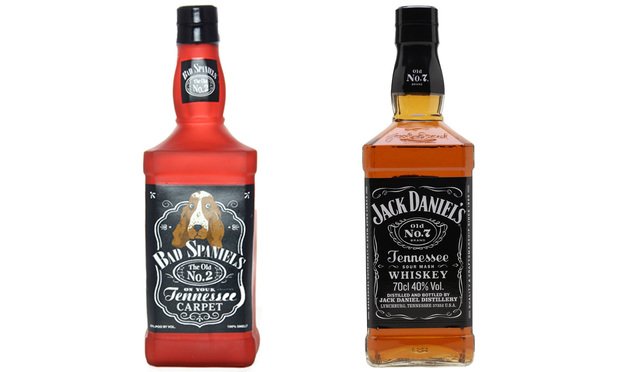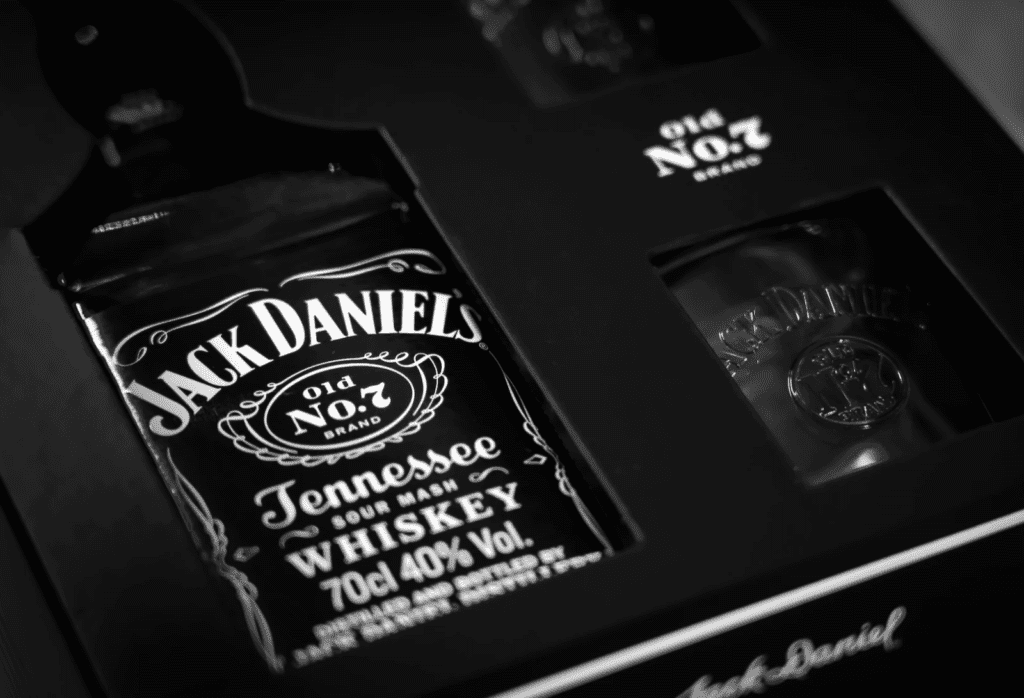The Supreme Court has issued its opinion in a trademark lawsuit that pitted Jack Daniel’s against the maker of squeaky dog toys that mimic the design of its famed whiskey bottle. Writing for the unanimous court, Justice Kagan held that “when an alleged infringer uses a trademark as a designation of source for the infringer’s own goods, the Rogers test does not apply.” The court did not go so far as to do away with the Rogers test, which was created by the Second Circuit “for titles of ‘artistic works’ based on its view that such titles have an ‘expressive element’ implicating ‘First Amendment values’ and carry only a ‘slight risk’ of confusing consumers about the ‘source or content’ of the underlying work.”
While the court took “no position” on the “merit” of Rogers, Kagan stated that the test has “always been a cabined doctrine: It has not insulated from ordinary trademark scrutiny the use of trademarks as trademarks.” That conclusion “fits trademark law, and reflects its primary mission,” per Kagan. “Consumer confusion about source—trademark law’s cardinal sin—is most likely to arise when someone uses another’s trademark as a trademark. In such cases, Rogers has no proper application. Nor does that result change because the use of a mark has other expressive content.” Under the Ninth Circuit’s approach, the Bad Spaniels toy was “automatically entitled to Rogers’ protection because it ‘communicate[d] a humorous message,'” the Justice continued, noting that “on that view, few trademark cases would ever get to the likelihood-of-confusion analysis, [a]nd the Ninth Circuit was mistaken to believe that the First Amendment demanded such a result. When a mark is used as a source identifier, the First Amendment does not demand a threshold inquiry.”
In this case, VIP “conceded that it used the Bad Spaniels trademark and trade dress as source identifiers,” and thus, the “only question remaining,” according to the court is “whether the Bad Spaniels trademarks are likely to cause confusion.” The court further states that “although VIP’s effort to parody Jack Daniel’s does not justify use of the Rogers test, it may make a difference in the standard trademark analysis,” and remanded that issue back to the lower courts.

The Background: The case got its start when Jack Daniel’s accused VIP Products of trademark infringement in connection with the design of a dog toy that resembles a bottle of its Old No. 7 Black Label Tennessee Whiskey. On the heels of the U.S. District Court for the District of Arizona finding for Jack Daniel’s on its trademark infringement and dilution claims and entering a permanent injunction in its favor, VIP Products appealed. In its decision, the Ninth Circuit sided with VIP Product in March 2020, holding that the Bad Spaniels dog toy was an “expressive work” that conveys a “humorous message,” and thus, is entitled to protection under the First Amendment. In siding with VIP Products, the court lifted an injunction that barred it from making and selling the toys.
In its bid for Supreme Court review, counsel for Jack Daniel’s argued that while “everyone likes a good joke,” VIP Products’ Bad Spaniels toy amounts to a “profit-motivated ‘joke’ [that] confuses consumers by taking advantage of Jack Daniel’s hard-earned goodwill.” Far from just being a joke, the whiskey-maker claimed that the Ninth Circuit’s decision provides “near-blanket protection” for infringers. It doubled-down on this argument in a recent reply brief, asserting that the court’s decision “invites humorists to infringe the marks of alcohol beverages and other famous brands under the umbrella of the First Amendment.”
In its defense, VIP Products asserted that “freedom of speech begins with freedom to mock,” arguing that it has engaged in parodic (and non-commercial) use of Jack Daniel’s trademarks by way of the dog toys. VIP maintained that it “merely mimicked enough of the iconic bottle so that people would get the joke,” and be confused as to the nature/source of its toy. As such, it claimed that the Rogers test should trump a traditional likelihood of confusion analysis.
The case is Jack Daniel’s Properties, Inc. v. VIP Products LLC, No. 22-148 (U.S.)














